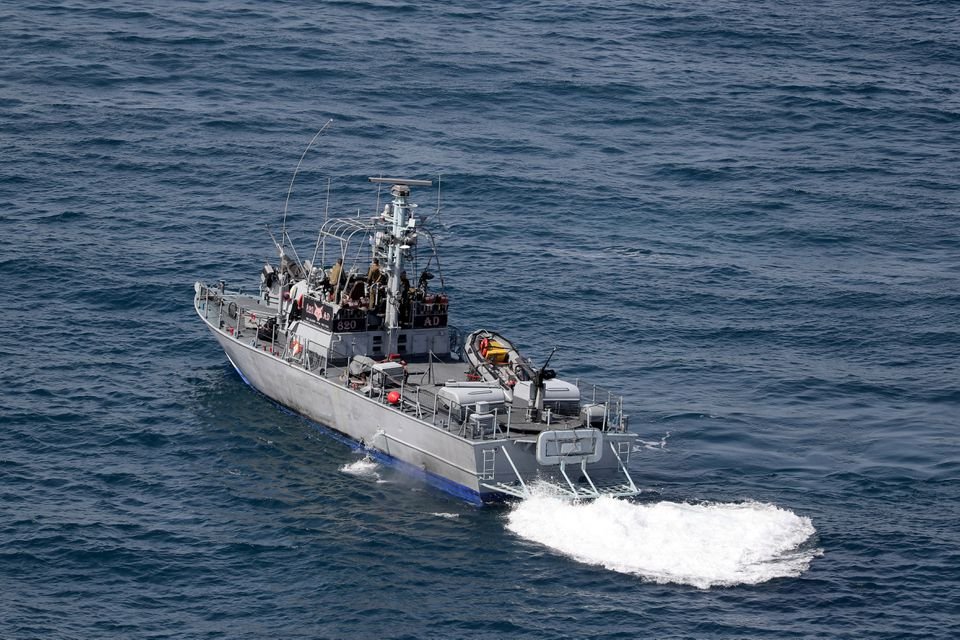by George Eid
A change of position by the US mediators was apparently the cause of the breakdown in the sixth round of US-mediated talks between Lebanon and Israel on Wednesday, the Cyprus Mail has learned.
Beirut was apparently “taken by surprise” by unexpected preconditions set by US mediators at talks a day earlier.
The determination of these maritime borders is of considerable importance for Cyprus which is still involved in negotiating maritime borders with Lebanon. Cyprus and Lebanon signed in January 2007 an agreement for the “delimitation of the Exclusive Economic Zone” (EEZ).’ The accord has been ratified by Cyprus, but not by Lebanon, which argues that it never was consulted on regarding agreements between Cyprus and Israel.
After coming to a sudden halt five months ago, US-mediated negotiations between Lebanon and Israel over disputed maritime borders resumed Tuesday. For over five hours, the delegations sat at the headquarters of UN peacekeepers in Naqura, south Lebanon.
US diplomat John Desrocher who arrived to Lebanon on Monday evening had brokered the fifth round of talks.
The US statement described the resumption of talks between the two countries that are technically at war as “a positive step toward a long-awaited resolution”.
The talks had broken down in December 2020 when Lebanon demanded a larger area of 860 square kilometers (330 square miles) of territory in the disputed maritime area. Israel dismissed the Lebanese claim stating it was not legal.
The Lebanese presidency issued a statement announcing that the Members of the Lebanese delegations met with Lebanese President Michel Aoun and briefed him on the deliberation that took place, pointing out that the head of the American delegation had requested that the negotiations be limited only between the Israeli and Lebanese borders lines that are registered with the United Nations.
Accordingly, president Aoun instructed the delegation not to pursue negotiations linked to preconditions, but rather to follow international law to reach a fair and equitable solution.
A source from the Lebanese Government told CM that the “the talks have picked up from where it stopped a few months ago. And Lebanon was determined to keep its position and claim over the 860 square kilometers. It insisted on its former position without any change.”
A source that spoke to CM on condition of anonymity said that “the Lebanese delegation was taken by surprise by the US mediators position during the fifth round on Tuesday – the US asked both parties to use the 1971 UN agreement on borders as a starting point. T
The American mediator said that this should not have come as a surprise, as the Lebanese president was made aware about the US point of view during the US Undersecretary for Political Affairs David Hale’s visit to Lebanon last April. However, the delegations were clearly directed by the Lebanese president not to back down from Lebanon’s claim for the 860 square kilometers that were not part of the 1971 agreement.”
“There was never a clear reason why the negotiations resumed. We did not really know which grounds were bringing the two countries back to the negotiating table,” Lebanese oil and gas expert Laurie Hatayan told the Cyprus Mail in an interview.
“The Lebanese president’s stance was clear yesterday during the meeting with the Lebanese delegation. He stressed that Lebanon will not negotiate with prior conditions imposed and thus he refused the American proposal of negotiating ” she explains.
She noted that the resumption of the talks “did not seem promising when it was announced suddenly. The US which was supposed to play the role of the meditators did not really find a middle ground between the two countries. Instead, since last year when the talks came to a sudden stop, the US took a step back by saying that the negotiations should happen on the condition that Lebanon must negotiate based on the UN-recognised maritime borders”.
“This is why the Lebanese delegation has refused to go back to the negotiation table today” she points out.
“I guess we have to wait and see if the US mediator will find a middle ground to get both countries back to the table” she concludes.
A government source told CM that “ the US mediator will not leave Lebanon tonight and that there are ongoing calls to tackle the situation within the next 48 hours”.







Click here to change your cookie preferences